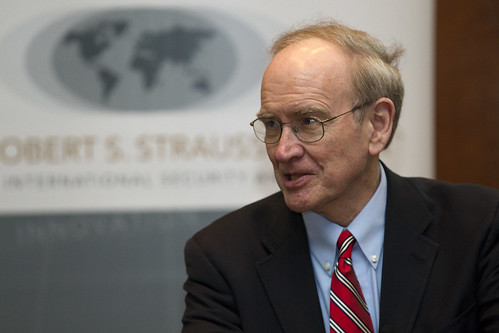Congratulations to Yale historian John Lewis Gaddis who received the Biography Pulitzer for George F. Kennan: An American Life (New York: Penguin Books, 2011). Gaddis spent over 5 years writing and almost 30 years researching the diplomat and grand strategist’s life, influences and impact. The chapters on Kennan’s ‘Long Telegram‘ and ‘X’ article are a real education in policy work. You can read the recent H-Diplo discussion of Gaddis’s book here. Louis Menand’s New Yorker review is here. I’ll miss Gaddis’s talk on Kennan at the Society for Historians of American Foreign Relations annual conference. Gaddis’s books on the Cold War and history have given me some informative insights as I work on my PhD about counterterrorism studies and strategic culture.
Here’s a 2012 video of Gaddis discussing George F. Kennan: An American Life:
Photo: Strauss Center/Flickr.
